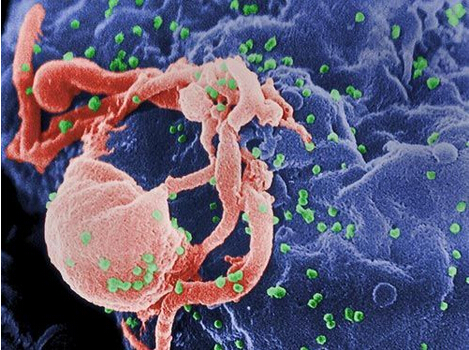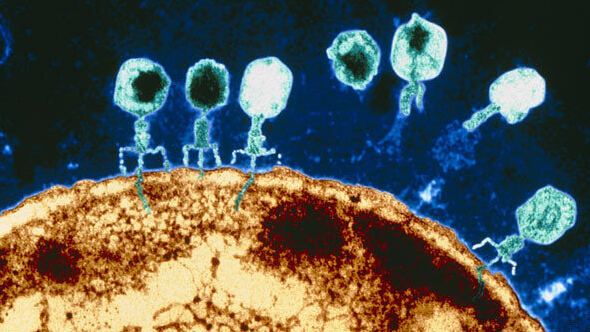PNAS:PTPRT基因可抑制肿瘤
发布时间:2010-04-28 04:28 来源:君健网
来自四川大学生命科学学院,霍德华休斯医学院,凯斯西储大学 (case western reserve University)等处的研究人员揭示了在人类结直肠肿瘤发生发展过程中的一个起着关键作用的信号传导通路,这对于研究人类结直肠肿瘤的起源有着重要意义。这一研究成果公布在《美国国家科学院院刊》上。
已有大量研究表明,在人类结直肠肿瘤中最易发生突变的是蛋白酪氨酸磷酸酶受体T(PTPRT),然而受PTPRT调节的细胞信号途径并不清楚,有待深入研究。
在这篇文章中,研究人员证明了PTPRT的直接作用底物是Paxillin,PTPRT能特异性地调节Paxillin Y88的磷酸化程度。通过在人类结直肠肿瘤细胞中构建的Paxillin Y88F纯合子突变细胞系,研究人员发现其细胞迁移和受损锚地非依赖性生长都有显著性降低。同时,这些细胞不能在裸鼠体内形成移植瘤,接头蛋白p130CAS、作为多种生长因子和细胞因子的下游信号分子蛋白酪氨酸磷酸酶SHP2以及PI3K下游分子丝氨酸/苏氨酸蛋白激酶AKT的磷酸化水平也有所减少。
通过构建PTPRT基因敲除的小鼠,研究人员发现在小鼠结肠中的Paxillin Y88磷酸化水平上升,在氧化偶氮甲烷致癌剂诱导下该小鼠极易发生结肠肿瘤,该结果首次在动物体内证明了PTPRT作为肿瘤抑制基因的功能。这些结果还显示,Paxillin Y88磷酸化的增加也是人类结直肠肿瘤中的一个共通现象。该研究结果揭示了在人类结直肠肿瘤发生发展过程中的一个起着关键作用的信号传导通路。
领导这一研究的是凯斯西储大学的王正和博士,第一作者是四川大学生命科学学院赵弋清博士,其他研究人员还包括杨志荣、孙群等。
这项研究获得“Faculty of 1000 Biology “推荐和点评。点评认为“该文揭示了癌症抑制因子蛋白酪氨酸磷酸酶受体T(PTPRT)与原癌基因和细胞骨架连接蛋白paxillin之间的重要的生化联系,对于研究人类结直肠肿瘤的起源有着重要意义”。
“Faculty of 1000 Biology”创办于2002年1月,是一种在线科研评价系统,其推荐原则立足于论文本身的科学意义而非发表在什么杂志上。该系统根据全球2300多名资深科学家的意见,提供对近期发表的生物科学论文的快速评论,目的是帮助广大科研人员遴选和发现有价值的研究工作。
点评该文章的是来自美国加利福利亚大学圣地亚哥分校的的Richard Klemke教授,作为该校蛋白质组学生物标记和诊断开发中心和癌症影像网络中心主任,他是“Faculty of 1000 Biology”专家成员之一,主要从事病理学、细胞学和蛋白质组学方面的研究。(生物谷Bioon.com)
编辑推荐原文出处:
PNAS doi: 10.1073/pnas.0914884107
Identification and functional characterization of paxillin as a target of protein tyrosine phosphatase receptor T
Yiqing Zhaoa,b, Xiaodong Zhangb, Kishore Gudac, Earl Lawrencec, Qun Suna, Toshio Watanabed, Yoichiro Iwakurad, Masahide Asanod, Lanlan Weie, Zhirong Yanga, Weiping Zhenge, Dawn Dawsonf, Joseph Willisf, Sanford D. Markowitzc, Masanobu Sataked, and Zhenghe Wangb,g,1
aCollege of Life Sciences, Sichuan University, Chengdu 610064, China;
bDepartment of Genetics and Case Comprehensive Cancer Center,
cDepartment of Medicine and Howard Hughes Medical Institute, and
fDepartment of Pathology, Case Western Reserve University, Cleveland, OH 44106;
dDepartment of Molecular Immunology, Institute of Development, Aging and Cancer, Tohoku University, Sendai 980-8575, Japan;
eDepartment of Chemistry, University of Akron, Akron, OH 44325; and
gGenomic Medicine Institute, Cleveland Clinic Foundation, Cleveland, OH 44195
Protein tyrosine phosphatase receptor-type T (PTPRT) is the most frequently mutated tyrosine phosphatase in human cancers. However, the cell signaling pathways regulated by PTPRT largely remain to be elucidated. Here, we show that paxillin is a direct substrate of PTPRT and that PTPRT specifically regulates paxillin phosphorylation at tyrosine residue 88 (Y88) in colorectal cancer (CRC) cells. We engineered CRC cells homozygous for a paxillin Y88F knock- in mutant and found that these cells exhibit significantly reduced cell migration and impaired anchorage- independent growth, fail to form xenograft tumors in nude mice, and have decreased phosphorylation of p130CAS, SHP2, and AKT. PTPRT knockout mice that we generated exhibit increased levels of colonic paxillin phosphorylation at residue Y88 and are highly susceptible to carcinogen azoxymethane- induced colon tumor, providing critical in vivo evidence that PTPRT normally functions as a tumor suppressor. Moreover, similarly increased paxillin pY88 is also found as a common feature of human colon cancers. These studies reveal an important signaling pathway that plays a critical role in colorectal tumorigenesis.
已有大量研究表明,在人类结直肠肿瘤中最易发生突变的是蛋白酪氨酸磷酸酶受体T(PTPRT),然而受PTPRT调节的细胞信号途径并不清楚,有待深入研究。
在这篇文章中,研究人员证明了PTPRT的直接作用底物是Paxillin,PTPRT能特异性地调节Paxillin Y88的磷酸化程度。通过在人类结直肠肿瘤细胞中构建的Paxillin Y88F纯合子突变细胞系,研究人员发现其细胞迁移和受损锚地非依赖性生长都有显著性降低。同时,这些细胞不能在裸鼠体内形成移植瘤,接头蛋白p130CAS、作为多种生长因子和细胞因子的下游信号分子蛋白酪氨酸磷酸酶SHP2以及PI3K下游分子丝氨酸/苏氨酸蛋白激酶AKT的磷酸化水平也有所减少。
通过构建PTPRT基因敲除的小鼠,研究人员发现在小鼠结肠中的Paxillin Y88磷酸化水平上升,在氧化偶氮甲烷致癌剂诱导下该小鼠极易发生结肠肿瘤,该结果首次在动物体内证明了PTPRT作为肿瘤抑制基因的功能。这些结果还显示,Paxillin Y88磷酸化的增加也是人类结直肠肿瘤中的一个共通现象。该研究结果揭示了在人类结直肠肿瘤发生发展过程中的一个起着关键作用的信号传导通路。
领导这一研究的是凯斯西储大学的王正和博士,第一作者是四川大学生命科学学院赵弋清博士,其他研究人员还包括杨志荣、孙群等。
这项研究获得“Faculty of 1000 Biology “推荐和点评。点评认为“该文揭示了癌症抑制因子蛋白酪氨酸磷酸酶受体T(PTPRT)与原癌基因和细胞骨架连接蛋白paxillin之间的重要的生化联系,对于研究人类结直肠肿瘤的起源有着重要意义”。
“Faculty of 1000 Biology”创办于2002年1月,是一种在线科研评价系统,其推荐原则立足于论文本身的科学意义而非发表在什么杂志上。该系统根据全球2300多名资深科学家的意见,提供对近期发表的生物科学论文的快速评论,目的是帮助广大科研人员遴选和发现有价值的研究工作。
点评该文章的是来自美国加利福利亚大学圣地亚哥分校的的Richard Klemke教授,作为该校蛋白质组学生物标记和诊断开发中心和癌症影像网络中心主任,他是“Faculty of 1000 Biology”专家成员之一,主要从事病理学、细胞学和蛋白质组学方面的研究。(生物谷Bioon.com)
编辑推荐原文出处:
PNAS doi: 10.1073/pnas.0914884107
Identification and functional characterization of paxillin as a target of protein tyrosine phosphatase receptor T
Yiqing Zhaoa,b, Xiaodong Zhangb, Kishore Gudac, Earl Lawrencec, Qun Suna, Toshio Watanabed, Yoichiro Iwakurad, Masahide Asanod, Lanlan Weie, Zhirong Yanga, Weiping Zhenge, Dawn Dawsonf, Joseph Willisf, Sanford D. Markowitzc, Masanobu Sataked, and Zhenghe Wangb,g,1
aCollege of Life Sciences, Sichuan University, Chengdu 610064, China;
bDepartment of Genetics and Case Comprehensive Cancer Center,
cDepartment of Medicine and Howard Hughes Medical Institute, and
fDepartment of Pathology, Case Western Reserve University, Cleveland, OH 44106;
dDepartment of Molecular Immunology, Institute of Development, Aging and Cancer, Tohoku University, Sendai 980-8575, Japan;
eDepartment of Chemistry, University of Akron, Akron, OH 44325; and
gGenomic Medicine Institute, Cleveland Clinic Foundation, Cleveland, OH 44195
Protein tyrosine phosphatase receptor-type T (PTPRT) is the most frequently mutated tyrosine phosphatase in human cancers. However, the cell signaling pathways regulated by PTPRT largely remain to be elucidated. Here, we show that paxillin is a direct substrate of PTPRT and that PTPRT specifically regulates paxillin phosphorylation at tyrosine residue 88 (Y88) in colorectal cancer (CRC) cells. We engineered CRC cells homozygous for a paxillin Y88F knock- in mutant and found that these cells exhibit significantly reduced cell migration and impaired anchorage- independent growth, fail to form xenograft tumors in nude mice, and have decreased phosphorylation of p130CAS, SHP2, and AKT. PTPRT knockout mice that we generated exhibit increased levels of colonic paxillin phosphorylation at residue Y88 and are highly susceptible to carcinogen azoxymethane- induced colon tumor, providing critical in vivo evidence that PTPRT normally functions as a tumor suppressor. Moreover, similarly increased paxillin pY88 is also found as a common feature of human colon cancers. These studies reveal an important signaling pathway that plays a critical role in colorectal tumorigenesis.
8个月大的婴儿大脑突触最多 学习能... 上一篇 | 下一篇 PNAS:吸烟并不能降低患帕金森病风...
热门话题
- 老看情色片,注意力会大大降低2011-04-25
- 癌细胞为何会疯狂分裂?2012-01-06
- 常喝绿茶和咖啡可降中风风险2013-08-19
- 认真的女人不爱生孩子2013-09-05
- 治疗白发、脱发或有更有效的方法2013-05-14
- 科学家探明乙醇对中枢神经的影响2013-06-05
- 新研究称欧米伽-3无助预防心血管疾病2012-09-12
- 美发现线粒体钙通道关键驱动蛋白2011-06-22
- 夏秋感冒难治愈2013-09-04
- 爱心脏,大脑也获益2013-05-10
-
医生姓名:刘伏友
所在科室:肾内科
工作医院:中南大学湘雅二医院
专业职称:主任医师
擅长疾病: 腹膜透析、各类肾病、慢性肾功能衰竭、尿毒症、血液...













